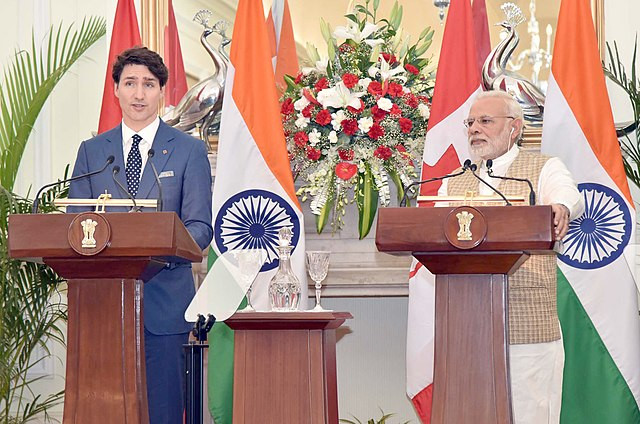Relations between India and Canada have hit a new low as the two countries expelled each other's top diplomats following a dispute over the killing of Sikh activist Hardeep Singh Nijjar in Canada. The escalating tensions have raised concerns about a growing rift between the two nations, which have long maintained strong trade and defense ties despite political differences.
Canada expelled India's top diplomat on Monday, accusing Indian government agents of involvement in Nijjar's assassination, which took place in June 2023 outside a Sikh temple in Surrey, British Columbia. Prime Minister Justin Trudeau said Canadian authorities had "clear and concrete evidence" linking Indian agents to the murder. In response, India expelled Canada's acting high commissioner and five other diplomats, rejecting the allegations as "absurd" and politically motivated.
Nijjar, a Canadian citizen and outspoken advocate for the creation of an independent Sikh homeland known as Khalistan, was fatally shot after leaving the temple he led. India had long accused him of being involved in terrorist activities, a claim Nijjar and his supporters denied. The issue of Sikh separatism has been a sensitive topic for India, and New Delhi has frequently expressed concerns about pro-Khalistan activities in Canada.
Canadian Foreign Minister Mélanie Joly defended the decision to expel the diplomats, stating that Canada's actions were based on "ample, clear, and concrete evidence" collected by the Royal Canadian Mounted Police (RCMP). The RCMP's investigation reportedly uncovered connections between Indian agents and criminal networks in Canada, which were allegedly used to carry out homicides and other violent acts targeting dissidents.
"We are not seeking confrontation with India, but we will not stand by while foreign agents engage in criminal activities on Canadian soil," Joly said. She emphasized that the safety and security of Canadians, particularly those from the South Asian community, remained a top priority.
India has strongly denied any involvement in Nijjar's assassination and dismissed the Canadian government's allegations as politically driven. In a statement, India's Ministry of External Affairs said the claims were "preposterous" and accused the Trudeau government of harboring Sikh separatists for political reasons. The ministry also accused Canada of failing to provide any substantive evidence to support its claims.
The diplomatic dispute between India and Canada has been simmering since last year, when Trudeau first suggested there were credible allegations linking the Indian government to Nijjar's murder. At the time, India responded by expelling a Canadian diplomat and halting consular services for Canadian citizens.
Tensions flared again earlier this year when Canadian authorities arrested three Indian nationals accused of involvement in Nijjar's killing. The RCMP has since expanded its investigation, alleging that Indian agents have been working with organized crime groups, including the notorious Bishnoi gang, to target dissidents in Canada. Lawrence Bishnoi, an Indian crime boss, is believed to have orchestrated several high-profile killings, including the assassination of a Sikh separatist leader in Winnipeg in September 2023.
Canadian police have linked Bishnoi's criminal network to Indian government agents, a connection that has heightened fears of a broader campaign of transnational violence against Sikh activists. "We believe the Bishnoi group is connected to the agents of the government of India," said RCMP Assistant Commissioner Brigitte Gauvin in a press conference.
Indian officials have consistently denied these claims. Reports have emerged that India's National Security Adviser Ajit Doval met with Canadian officials to discuss the allegations, where he reportedly dismissed the accusations but acknowledged that Bishnoi, who has been imprisoned since 2014, was capable of orchestrating violence from behind bars.
The situation has also drawn attention in the United States, where Indian agents were allegedly involved in a plot to kill another Sikh activist, Gurpatwant Singh Pannun, last year. U.S. officials have engaged in discussions with India about these transnational activities, and Indian officials are expected to visit Washington, D.C., to address the allegations.
As the diplomatic fallout continues, the dispute threatens to strain India-Canada relations further. "We have moved from a rift to a major rupture in the relationship with India," said Fen Osler Hampson, professor of international relations at Carleton University in Ottawa. "It is hard to see how a return to normalcy can happen any time soon."
Both nations have historically cooperated on various global issues, including countering China's influence in the Indo-Pacific. However, India's anxieties over Sikh separatism and Canada's large Sikh diaspora, which makes up nearly 2% of the population, have led to recurring tensions.




